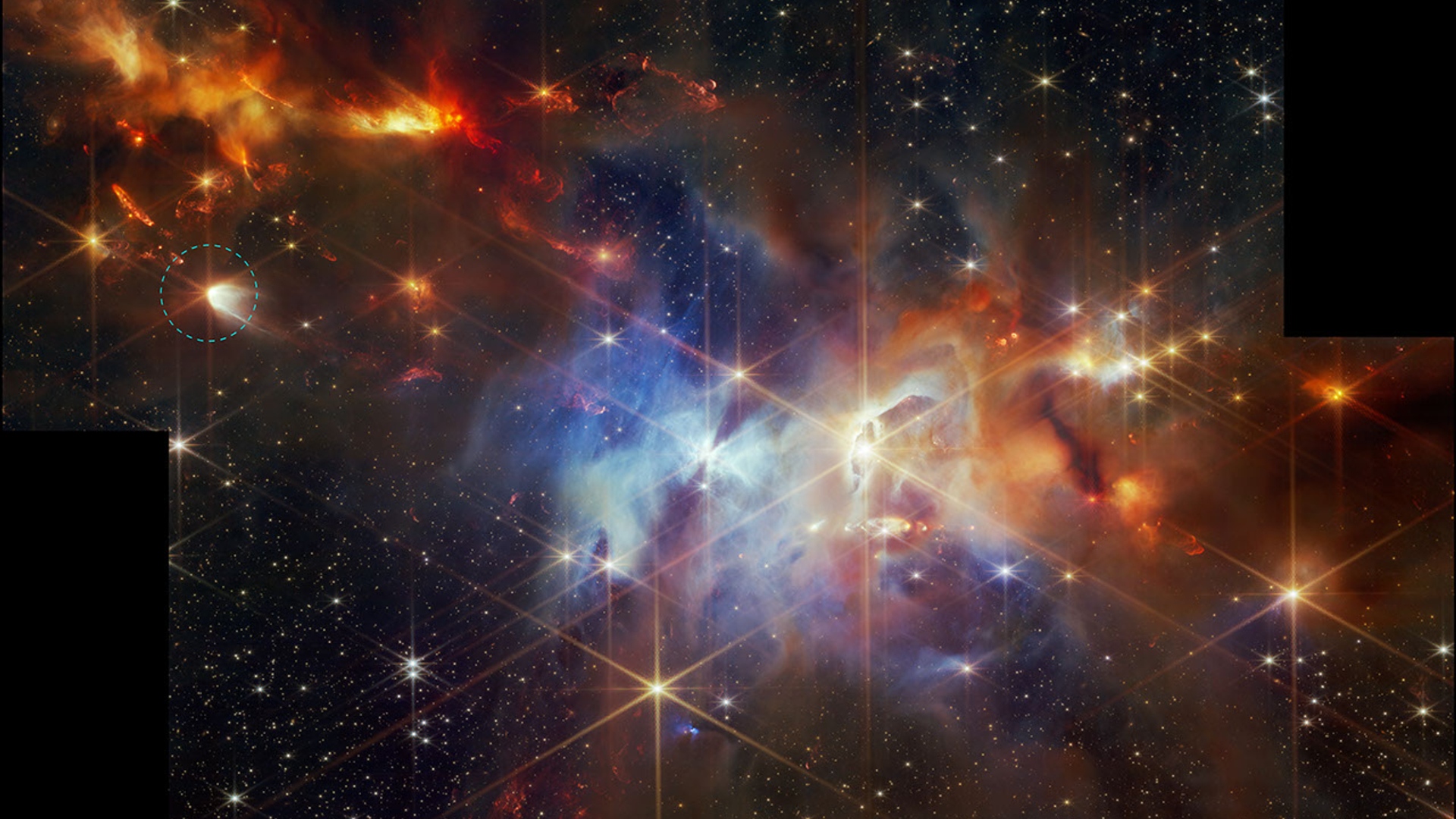Blue Origin will launch 2 more passenger spaceflights this year after 1st astronaut launch success
"Sales are open, everybody!"
Blue Origin plans to fly two more flights with paying customers in 2021 after founder Jeff Bezos and three other crew members made a debut trip on the company's New Shepard rocket Tuesday (July 20).
Ariane Cornell, Blue Origin's director for astronaut and orbital sales, talked about the company's plans for astronauts and for payload opportunities during a news conference Sunday (July 18) and during preflight commentary on Tuesday. Blue Origin has not released per-seat pricing or many details yet about when seats on tourist flights will be widely available, but Cornell said she has been speaking with some of the participants who placed bids for the fourth seat on New Shepard's first crewed flight.
"Since the auction on June 12, I've had the good pleasure of speaking on the phone with many of the participants from the auction, who now have been quickly filling up seats for the next several launches," Cornell said on Tuesday. "Sales are open, everybody!"
Related: Jeff Bezos launches into space on Blue Origin's 1st astronaut flight
Currently, she added, potential customers should email astronauts@blueorigin.com for more information on purchasing a ticket.
The anonymous winning bidder of the initial auction, who paid $28 million, did not fly today due to a scheduling conflict and will be put on a future flight, the company has said.
Instead, 18-year-old Oliver Daemen became the first paying passenger on New Shepard after his father, Somerset Capital Partners founder Joes Daemen, made the runner-up bid. The younger Daemen was originally set to fly on the second human spaceflight, but Oliver switched flights when the winning bidder was unavailable. How much Daemen paid has not yet been disclosed.
Breaking space news, the latest updates on rocket launches, skywatching events and more!
The other two crew members on the July 20 flight were Bezos' brother Mark (a millionaire in his own right, as he owns shares of Amazon) and "Mercury 13" aviator Wally Funk (to whom Bezos offered the seat).
Cornell said on Sunday that other customers have "already signed up for the subsequent flights," with two more expected in 2021 and "many more to come in the future," she added. "We have already built a robust pipeline of customers that are interested."
Blue Origin CEO Robert Smith also said Sunday that the company could launch its next crewed flight in September.
Cornell added the company hopes to work with NASA to fly astronauts on its commercial suborbital spacecraft, referring to a 2020 request for proposals from the agency that has not yet resulted in contracts. As of May 2021, the proposed human suborbital program is undergoing a system qualification and safety review, according to tender documents available on the U.S. government website for contracts, called System for Award Management.
Cornell also spoke about how New Shepard space tourists will prepare for going "up there over the Kármán line," an internationally recognized boundary of space generally interpreted to lie at an altitude of 62 miles (100 kilometers). In recent weeks, Blue Origin has been repeatedly emphasizing its capability to fly above that altitude, as opposed to competitor Virgin Galactic. Virgin Galactic's VSS Unity spaceplane, however, exceeds a maximum altitude of 50 miles (80 km) recognized as the boundary of space by NASA, the U.S. military and the Federal Aviation Administration.
New Shepard's 11-minute suborbital flight peaks over 62 miles (100 km), when the capsule separates from its carrier rocket, Cornell said. The tourists will get to "gaze out of those big beautiful windows" (another point of differentiation Blue Origin is citing, over Virgin Galactic) and enjoy about four minutes of weightlessness, she said. Some crew members may sneak in somersaults.
"But then we will ask them to get back in their seats and buckle back in," she continued, describing the flight. "They will descend under three large parachutes and then just in the last moments [before landing], the retro thrust system comes on and provides a nice air cushion for the capsule."
Astronauts won't be the only thing New Shepard flies, as the spacecraft will continue to put payloads into suborbital space on behalf of its customers. Already NASA, other international space agencies, universities and some schoolchildren have been among the company's customers, Cornell said.
The company has two active spacecraft, one of which will be devoted to people and the other to payloads, she added.
Follow Elizabeth Howell on Twitter @howellspace. Follow us on Twitter @Spacedotcom and on Facebook.

Elizabeth Howell (she/her), Ph.D., was a staff writer in the spaceflight channel between 2022 and 2024 specializing in Canadian space news. She was contributing writer for Space.com for 10 years from 2012 to 2024. Elizabeth's reporting includes multiple exclusives with the White House, leading world coverage about a lost-and-found space tomato on the International Space Station, witnessing five human spaceflight launches on two continents, flying parabolic, working inside a spacesuit, and participating in a simulated Mars mission. Her latest book, "Why Am I Taller?" (ECW Press, 2022) is co-written with astronaut Dave Williams.

